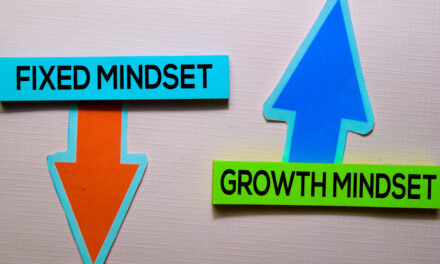Introduction
In the dynamic landscape of entrepreneurship, resilience stands as the bedrock of enduring success. It’s the invisible force that empowers entrepreneurs to transform the ashes of their failures into the foundation of their success stories. For coaches navigating the competitive realm of digital marketing, understanding and harnessing this resilience is not just a skill—it’s a necessity.
The journey of entrepreneurship is often romanticized through its successes, yet it is the silent echoes of failure that truly shape the resilient spirit. Learning from failure in business is not just about absorbing lessons; it’s about redefining one’s approach to challenges and setbacks. It’s a process that forges the most resilient of leaders, capable of steering their ventures through the tumultuous seas of the business world.
As we delve into the narratives of successful entrepreneurs, we uncover a common thread—a relentless pursuit of their vision, regardless of the hurdles. These are the tales that don’t always make the headlines, yet they are the ones that resonate most with those who dream big. Overcoming business failure is not an act of defiance against the odds but an embrace of the learning curve that every entrepreneur must navigate.
This blog post aims to unravel the fabric of entrepreneurial resilience strategies, drawing from the rich tapestry of successful entrepreneurs’ failures. By weaving these insights into the fabric of your coaching practice, you can empower your clients to see failure not as a blockade but as a stepping stone to greater heights. We will explore how to build a resilient business mindset, one that not only survives the setbacks but thrives because of them.
Join us as we embark on this exploration of resilience in entrepreneurship, where each setback is a setup for a comeback, and every failure is a lesson in disguise. For the digital marketing coach, these stories and strategies are not just inspiration—they’re a roadmap to cultivating a business that can withstand, adapt, and grow, no matter what comes its way.
The Paradox of Failure and Success in Entrepreneurship
The entrepreneurial path is often mystified by the paradox of failure and success, where each misstep is a potential prelude to triumph. This dichotomy is best encapsulated in the story of Steve Jobs, whose ousting from Apple—a company he co-founded—was a public and painful failure. Yet, it was this very setback that catalyzed the introspection and innovation leading to his monumental return and the subsequent revolution in consumer technology. Jobs’ journey epitomizes the essence of entrepreneurial resilience—turning failure into a catalyst for reinvention.
Embracing this paradox requires a shift in perspective: viewing failure as a stepping stone, not a stumbling block. Entrepreneurs like Jobs teach us that the lessons gleaned from the ashes of a failed venture often ignite the fire of future successes. It’s a theme that resonates deeply with digital marketing coaches, whose role is to guide their clients through the labyrinth of online business—a landscape where algorithms change as swiftly as market trends.
The digital realm, with its rapid pace and constant evolution, demands a brand of entrepreneurship that is fluid and adaptable. Here, failure is not merely possible; it is inevitable. But within this inevitability lies opportunity. For instance, a failed marketing campaign provides a wealth of data—insights into consumer behavior, engagement metrics, and conversion bottlenecks. This data is invaluable for recalibrating strategies and sharpening the marketing edge.
In the world of digital marketing, resilience is about agile adaptation. It’s about analyzing the performance of a failed ad, tweaking the targeting, adjusting the messaging, and testing it anew. It’s about understanding that each campaign is a learning opportunity, a chance to refine tactics and strategies.
Thus, the successful digital marketing coach doesn’t just teach resilience; they embody it. They turn the paradox of failure and success into a powerful teaching tool, showing that the most profound growth often comes after the hardest falls. They inspire their clients to see beyond the failure, to the success that lies ahead, waiting to be seized by those brave enough to continue the journey.
The Psychology of Resilience: Building a Resilient Business Mindset
The psychology of resilience in entrepreneurship is a tapestry woven with threads of grit, adaptability, and unwavering determination. It’s the mental armor that entrepreneurs don to navigate the unpredictable waters of business. Building a resilient business mindset is not about shielding oneself from the impact of failure; rather, it’s about absorbing the shock, learning, and bouncing back with greater force.
At the heart of this mindset is a concept psychologists call ‘post-traumatic growth,’ the ability to thrive after experiencing setbacks. Entrepreneurs who embody this growth don’t just recover from failures; they use them as leverage to propel themselves to new heights. For instance, Arianna Huffington’s rejection by 36 publishers was not the end of her story; it was a pivotal chapter that led to the creation of the Huffington Post. Similarly, digital marketing coaches must instill in their clients the understanding that a failed campaign isn’t a verdict but a valuable lesson in disguise.
A resilient business mindset also hinges on the practice of ‘reframing’—a technique where an individual learns to shift their perspective on failure from a negative event to an opportunity for growth. This cognitive restructuring is crucial for entrepreneurs, especially in the realm of digital marketing, where the landscape is in constant flux. When a strategy doesn’t yield the desired ROI, the resilient entrepreneur reframes the outcome: What can be learned? How can this inform future strategies? This reframing turns a seeming dead-end into a detour leading to a more effective route.
Moreover, resilience is fortified by a supportive community. Entrepreneurs often share their journeys, offering solidarity and insights that can be transformative. Digital marketing forums, social media groups, and coaching sessions are fertile grounds for such exchanges, where stories of overcoming business failure are shared and celebrated. These narratives are not just comforting; they are instructive, providing real-world examples of resilience in action.
Building this resilient mindset is also about proactive resilience-building practices. Entrepreneurs can engage in mental conditioning through mindfulness, stress management techniques, and setting realistic yet challenging goals. For digital marketing coaches, teaching clients to set up A/B testing, analyze analytics for insights, and iterate their content strategy are practical applications of these practices.
In essence, a resilient business mindset is the psychological scaffolding that supports entrepreneurial endeavors. It’s a mindset that digital marketing coaches must cultivate within themselves and their clients. By doing so, they transform the digital marketing landscape into a training ground for resilience, where each click, each conversion, and each campaign becomes a lesson in the art of entrepreneurial perseverance.
Case Studies: Lessons Learned from Business Failures
The entrepreneurial landscape is rich with stories of resilience, where business failures serve as critical learning junctures. These case studies offer a treasure trove of insights for digital marketing coaches and their clients, illustrating not just the capacity to recover, but to thrive after a fall.
Case Study 1: The Rebirth of a Tech Giant
Consider the case of Microsoft’s ‘Windows Vista’—a product launch that became a textbook example of failure in the tech industry. Vista faced widespread criticism for its performance issues and incompatibility with existing hardware. However, Microsoft took these criticisms as constructive feedback, leading to the development of Windows 7, which corrected Vista’s flaws and was met with critical acclaim. The lesson here is clear: entrepreneurial resilience strategies often involve listening to feedback, no matter how harsh, and using it to make a superior product. For digital marketing coaches, this underscores the importance of monitoring customer feedback and engagement metrics to refine their strategies.
Case Study 2: A Beverage Blunder Turned Marketing Triumph
Another instructive example is the infamous ‘New Coke’ debacle of 1985. Coca-Cola introduced a new formula in an attempt to revitalize the brand and compete with Pepsi. The backlash was immediate and intense, with consumers demanding the return of the original formula. Coca-Cola swiftly responded by reintroducing ‘Coca-Cola Classic,’ which resulted in a surge in sales and, unexpectedly, a stronger brand loyalty. This blunder turned triumph teaches us that even the most significant setbacks can be turned around with quick, responsive action. Digital marketing coaches can take away the importance of agility and responsiveness to consumer sentiment, using social listening tools and analytics to pivot strategies quickly.
Integrating Lessons into Digital Marketing
These case studies carry profound lessons for those in digital marketing. The rapid feedback loops and analytics available in digital marketing provide a unique opportunity to learn from failures quickly and adjust course. For instance, a poorly performing ad campaign can offer insights into audience preferences, allowing for real-time adjustments in targeting or messaging. Coaches can guide their clients to see these ‘failures’ as rich data sources for refining their digital presence.
Moreover, the resilience shown by these companies emphasizes the value of transparency and communication. When a strategy fails, addressing the issue openly can build trust with the audience—much like Coca-Cola’s admission of misjudgment did. Digital marketing coaches should encourage clients to communicate openly with their audience, fostering a community that can withstand the ebbs and flows of the market.
In conclusion, these case studies not only serve as cautionary tales but also as beacons of hope, demonstrating that the right mindset and approach can turn even the most significant failures into success stories. For digital marketing coaches, they provide a framework for teaching resilience: analyze, adapt, and advance. By instilling these principles, coaches can prepare their clients to face the digital marketing world with confidence, equipped to transform every setback into a step forward.
Strategies for Overcoming Business Failure
Overcoming business failure is not just about damage control—it’s about strategic reinvention. Entrepreneurs and digital marketing coaches alike can benefit from a toolkit of strategies designed to turn setbacks into growth opportunities.
Embrace Analytical Review
Firstly, a thorough analytical review is crucial. This means dissecting what went wrong and why. In digital marketing, this could involve diving into campaign analytics to understand issues with customer targeting, content engagement, or conversion rates. Coaches should guide their clients through this data-driven introspection, helping them to identify not just the shortcomings of a failed campaign, but also the hidden opportunities for optimization.
Foster a Culture of Innovation
Secondly, fostering a culture of innovation within the business environment is essential. After a failure, encourage a brainstorming session to generate creative solutions. Digital marketing is particularly suited to rapid testing of new ideas, whether it’s a fresh content angle or a different social media platform. Coaches should encourage clients to experiment with new digital marketing tactics, using the insights gained from past failures to inform these innovations.
Strengthen Resilience Through Community
Lastly, strengthening resilience through community support can be incredibly powerful. Sharing experiences with peers can provide both solace and practical advice. Digital marketing coaches should build networks where entrepreneurs can exchange stories of both failure and success, creating a supportive ecosystem. This community can become a resource for shared learning, where the collective wisdom of many helps to navigate the individual challenges of few.
Incorporating these strategies can help transform the narrative of failure from a tale of defeat to one of empowerment. For digital marketing coaches, these approaches are not just strategies, but also lessons in resilience to pass on to their clients, ensuring they are equipped to face future challenges with a robust and proactive mindset.
Implementing Resilience Practices: From Theory to Action
Translating the theory of resilience into actionable practices is the key to fortifying a business against the inevitable challenges it will face. For digital marketing coaches, this means guiding clients through the practical application of resilience-building strategies.
Actionable Insights for Digital Marketing
Begin by integrating resilience into the very fabric of digital marketing plans. Encourage clients to set aside resources for experimentation, allowing them to test new marketing channels without the fear of failure. Implement regular ‘resilience audits’ of their marketing strategies, assessing the flexibility and responsiveness of their campaigns, and adjusting as needed.
Creating a Resilient Digital Presence
Moreover, coaches should emphasize the importance of a resilient digital presence—one that can adapt to changing algorithms and audience behaviors. This involves creating content that is not only SEO-friendly but also robust against the shifts in digital trends. Encourage clients to develop a diversified content portfolio that can withstand the test of time and trend.
By moving from theory to action, digital marketing coaches can ensure that their clients are not just surviving in the business world, but thriving within it, with resilience as their cornerstone.
Conclusion: Embracing Failure to Forge Success
In the grand narrative of entrepreneurship, failure is not the antithesis of success; it is its most profound teacher. As digital marketing coaches, it is our privilege and responsibility to guide our clients to embrace their failures, not with resignation, but with the resolve to forge success from the lessons learned.
Encourage clients to view each setback as a stepping stone towards their goals. The digital landscape is particularly conducive to this mindset, with its capacity for rapid iteration and feedback. Coaches should foster an environment where failure is not stigmatized but celebrated as a harbinger of growth and innovation.
As we conclude, remember that the stories of resilience from successful entrepreneurs are not outliers—they are beacons that light the way for all who follow. By adopting a resilient business mindset, coaches and their clients can navigate the digital marketing world with confidence, turning every failure into a cornerstone of their future success.
Let us then not fear failure, but rather, harness it. Let it be the crucible in which our entrepreneurial spirit is tested and strengthened. For in the end, it is not the failures we encounter that define our journey, but the resilience we build as we overcome them.











